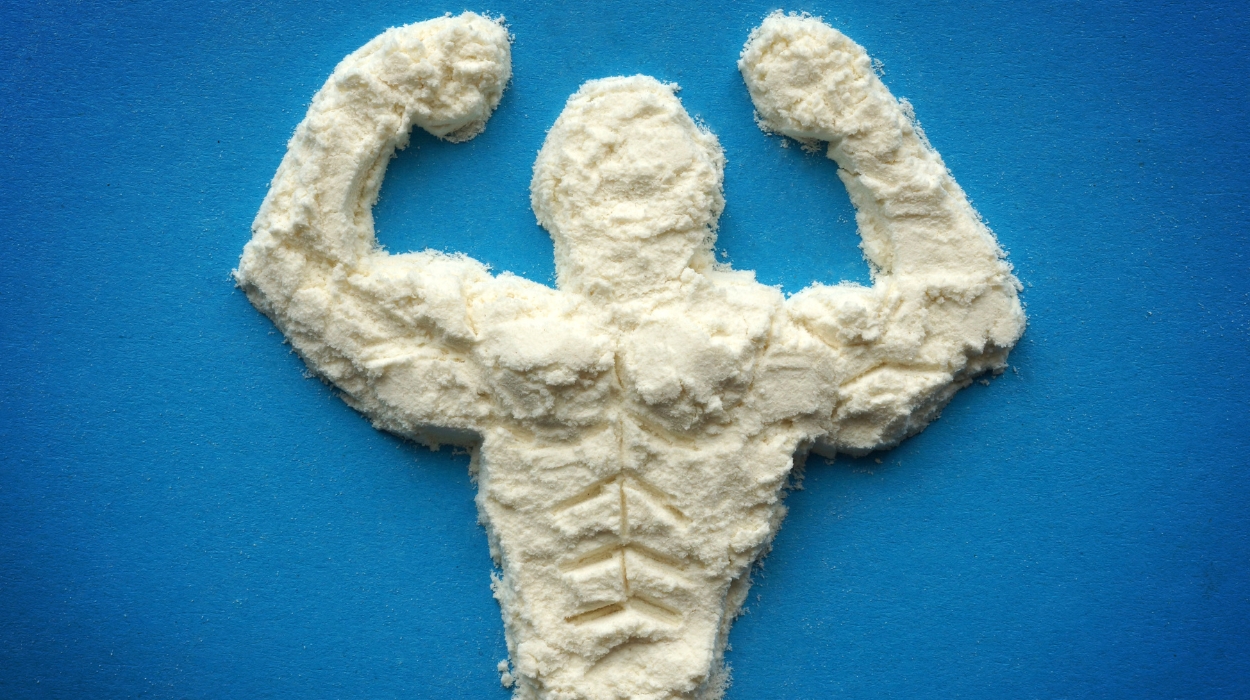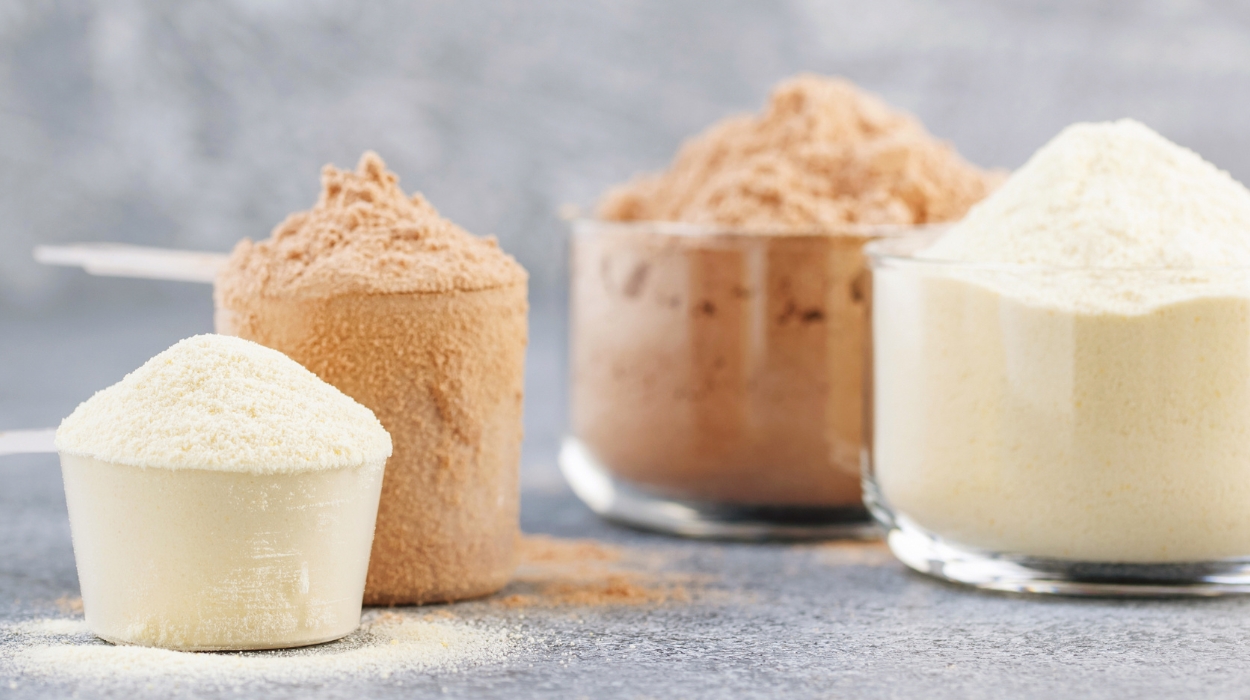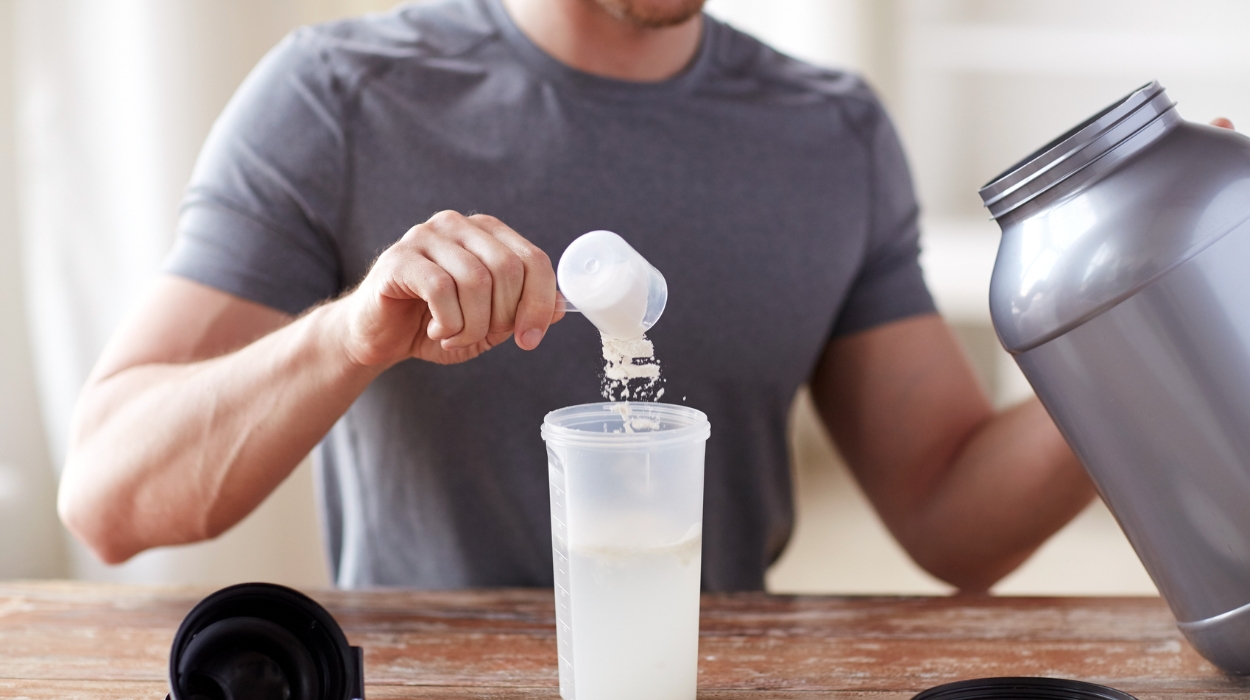 Expert's opinion
Expert's opinion
Expert's opinion
The article is a subjective view on this topic written by writers specializing in medical writing.
It may reflect on a personal journey surrounding struggles with an illness or medical condition, involve product comparisons, diet considerations, or other health-related opinions.
Although the view is entirely that of the writer, it is based on academic experiences and scientific research they have conducted; it is fact-checked by a team of degreed medical experts, and validated by sources attached to the article.
The numbers in parenthesis (1,2,3) will take you to clickable links to related scientific papers.
How Many Protein Shakes A Day To Gain Weight 2024?

If you’re trying to gain weight, adding protein shakes to your diet may help. Supplementing with protein shakes is a convenient way to consume more calories and protein. How many daily protein shakes you need to gain weight will depend on your calorie requirements and current intake. Incorporating protein shakes into a healthy diet and exercise program can help maintain and build muscle mass.
How Many Protein Shakes Should I Drink A Day To Gain Weight?
How many shakes you need per day to gain weight or build muscle depends on your calorie and protein requirements, your health goals, and your typical daily nutrition intake. A typical protein shake provides 20-30 g of protein and 120-160 calories per serving. Generally, 1-2 protein shakes per day should provide the additional calories and protein you need.
How Many Protein Shakes A Day To Gain Weight?

How many protein shakes you need in a day will depend on your calorie and protein requirements, your health goals, and your typical daily nutrition intake. Your calorie and protein needs vary based on many factors, including your body composition (height, body weight, and percentage of fat mass and fat-free mass), age, sex, and activity level.
If you’re trying to gain weight, you need to increase your calorie intake by about 500 calories per day for every pound per week you want to gain. If you’re very active, your nutrition needs will be higher than someone who is sedentary.
Protein Need For Adults
The base protein recommendation for healthy adults is 0.8 grams (g) per kilogram (kg). If you exercise regularly, your protein needs to go up to approximately 1-1.2 grams per kilogram. The additional protein is needed for muscle repair and muscle building. A kg is 2.2 pounds (lbs).
Older adults’ protein needs are higher than those of younger adults due to muscle loss that occurs with aging and are estimated at 1-1.2 g per kg.[1] Most older adults should aim for 30-40 g of protein per meal[1] to meet protein needs and maintain muscle mass. Many older adults don’t eat enough protein to meet their needs, and protein supplements may help bridge this gap.
Drinking protein shakes has been found to increase calorie intake in older adults without suppressing appetite, which is important if you’re trying to gain weight. If you have any health conditions, you should consult with your healthcare provider or registered dietitian before supplementing with protein shakes.
Protein Need For Athletes
Athletes’ protein needs generally range from 1.2-2 g of protein per kg. Protein intake should be spread throughout the day in amounts equal to about 0.3 g per kg per meal. This works out to about 20-40 g of protein intake[2] per meal for most athletes. This quantity of protein has been shown to provide the number of essential amino acids needed to maximize muscle protein synthesis.
A protein drink can be a quick and easy way to up the protein content of a meal or snack post-workout. Muscle protein synthesis occurs with a combination of exercise and a balanced diet, including adequate protein and calorie intake.
Protein supplements have been shown to increase lean tissue mass[3] in young adults doing resistance training. It’s generally recommended that you consume protein within two hours after a workout, but recent evidence suggests that protein intake may continue to aid muscle recovery[4] up to a day after training or even longer.
How Often To Drink Protein Shakes Weight Gain?

It’s best to increase calories moderately for weight gain, up to about 300-500 extra calories per day. Adding too many calories too quickly or being sedentary can result in fat gains rather than lean body mass. Adding a protein shake to a meal or snack will give you a significant calorie boost without making you feel overly full.
While you should add your protein shake to the meal or snack you prefer, it’s best to space high-protein meals or shakes throughout the day, at least 3-5 hours apart,[2] to maximize muscle gains. If you’re using the shakes to build muscle, it may be most effective to add your protein supplements within two hours of a workout.
While adequate protein intake is critical for overall health and lean body mass, it’s also important not to get too much protein. Drinking too many protein shakes can provide more protein than your body can use. Some research[3] indicates that a protein intake of over 1.6 g per kg may not support further gains in muscle mass.
A very high protein diet, especially those high in animal proteins, can even be detrimental to your health over the long term and may lead to kidney damage.[5] Using too many shakes can also replace healthful whole foods in your diet that provide valuable micronutrients and plant-based antioxidants. If weight gain is your goal, focus on making your shakes high-calorie by adding calorie-dense foods.
Ways To Add Protein To Your Daily Diet
Protein is important for many essential body processes, including immune function, cell repair, and fluid balance, in addition to muscle maintenance and repair. Most of your daily protein intake should come from whole foods. Protein foods are important for a balanced diet and provide a variety of essential micronutrients.
Whole food protein sources include lean meats, poultry, eggs, seafood, beans, peas, lentils, soy products, nuts, and seeds. Most adults should aim for at least 5-7 ounce-equivalents of protein foods each day. Examples are one ounce of lean meat, poultry, fish, or tempeh, ¼ cup of cooked beans, lentils, or tofu, one tablespoon of nut butter, and ½ ounce of nuts or seeds.
Consuming a variety of protein-rich foods will benefit your overall health. If you’re having trouble meeting your protein or calorie needs through your diet, you may want to consider protein powder for a nutrition boost. When shopping for a protein shake, look for products that contain a high-quality protein source, such as whey or soy protein, or a combination of sources, and avoid those that are highly processed or contain too many added sugars.
Protein can only do its job if adequate calories are consumed; otherwise, it will be used for calories to sustain bodily functions. To maximize muscle protein synthesis, make sure you consume enough calories to meet your weight gain goals.
Ways To Add Calories
If you’re trying to gain weight, you’ll need to increase your daily calorie intake. You may add some snacks during the day to take in more food. Focus on adding calorie-dense whole foods to meals and snacks, such as full-fat yogurt or cheese, nuts, seeds, nut butter, avocado, and healthy oils like olive oil. Supplementing your diet with protein shakes can provide an additional 120-160 calories per shake, but you may need to add more calories, depending on your weight gain goals.
To make weight gain shakes with additional calories, add whole-fat dairy or plant-based milk or yogurt to your protein shake, or make a protein smoothie in a blender. Adding a fat source to your protein smoothie is the easiest way to increase calories, so try nut butter, nuts, avocado, coconut, or a little extra virgin olive oil. You can also add fresh or frozen fruit and whole grains like rolled oats for additional flavor and calories.
The following smoothie recipe will provide approximately 615 calories and 42 g of protein, depending on your choice of protein powders.
Fruit and Nut Butter Protein Smoothie:
- 1 scoop protein powder of choice
- 1 cup whole milk
- ¼ cup plain full-fat yogurt
- 1 Tablespoon natural peanut butter
- 1 frozen banana
- ½ cup frozen mango
- ¼ cup frozen blueberries
- 1 teaspoon chia seeds
Feel free to vary the fruit or nut butter and substitute non-dairy milk or yogurt if desired (this will alter the calorie estimate).
Gaining Weight With Shakes
Gaining weight can be challenging if you have a fast metabolism or reduced nutrition due to a poor appetite or other factors. Drinking protein shakes may help you meet your weight gain goals. The extra calories and protein can help you gain body weight and muscle mass.
Athletes, older adults, or others with higher calorie or protein requirements may benefit from adding protein shakes. Protein is important for repairing and building muscle tissue. Protein shakes are a good choice for amino acids and calories if you don’t have the time or ability to prepare a high-protein meal or snack. When consumed in moderation, protein shakes won’t interfere with your intake of whole foods.
The best choice is a minimally processed shake with a high-quality protein source like whey or soy. Your choice may vary depending on whether you prefer plant-based proteins or animal protein sources such as whey protein shakes or if you’d like a combination. Complete sources of vegetable protein are found in soy and hemp. Combinations of vegetable proteins can be blended in such a manner as to provide all nine essential amino acids.
Final Word
When trying to gain weight, it’s critical to make sure that you’re consuming enough high-calorie whole foods, including sources of healthy fats. If you need an additional calorie boost, you may want to incorporate protein shakes into meals or snacks to aid your weight gain efforts and help maintain or build muscle.
+ 5 sources
Health Canal avoids using tertiary references. We have strict sourcing guidelines and rely on peer-reviewed studies, academic researches from medical associations and institutions. To ensure the accuracy of articles in Health Canal, you can read more about the editorial process here
- Chapman, I., Oberoi, A., Giezenaar, C. and Soenen, S. (2021). Rational Use of Protein Supplements in the Elderly—Relevance of Gastrointestinal Mechanisms. Nutrients, [online] 13(4), pp.1227–1227. doi:https://doi.org/10.3390/nu13041227.
- Vitale, K. and Getzin, A. (2019). Nutrition and Supplement Update for the Endurance Athlete: Review and Recommendations. Nutrients, [online] 11(6), pp.1289–1289. doi:https://doi.org/10.3390/nu11061289.
- Morton, R.W., Murphy, K.L., McKellar, S.R., Schöenfeld, B.J., Menno Henselmans, Helms, E.R., Aragon, A.A., Devries, M.C., Banfield, L., Krieger, J. and Phillips, S.M. (2017). A systematic review, meta-analysis, and meta-regression of the effect of protein supplementation on resistance training-induced gains in muscle mass and strength in healthy adults. British Journal of Sports Medicine, [online] 52(6), pp.376–384. doi:https://doi.org/10.1136/bjsports-2017-097608.
- Cintineo, H.P., Arent, M.A., José António and Arent, S.M. (2018). Effects of Protein Supplementation on Performance and Recovery in Resistance and Endurance Training. Frontiers in Nutrition, [online] 5. doi:https://doi.org/10.3389/fnut.2018.00083.
- Gang Jee Ko, Rhee, C.M., Kamyar Kalantar-Zadeh and Joshi, S. (2020). The Effects of High-Protein Diets on Kidney Health and Longevity. Journal of The American Society of Nephrology, [online] 31(8), pp.1667–1679. doi:https://doi.org/10.1681/asn.2020010028.



